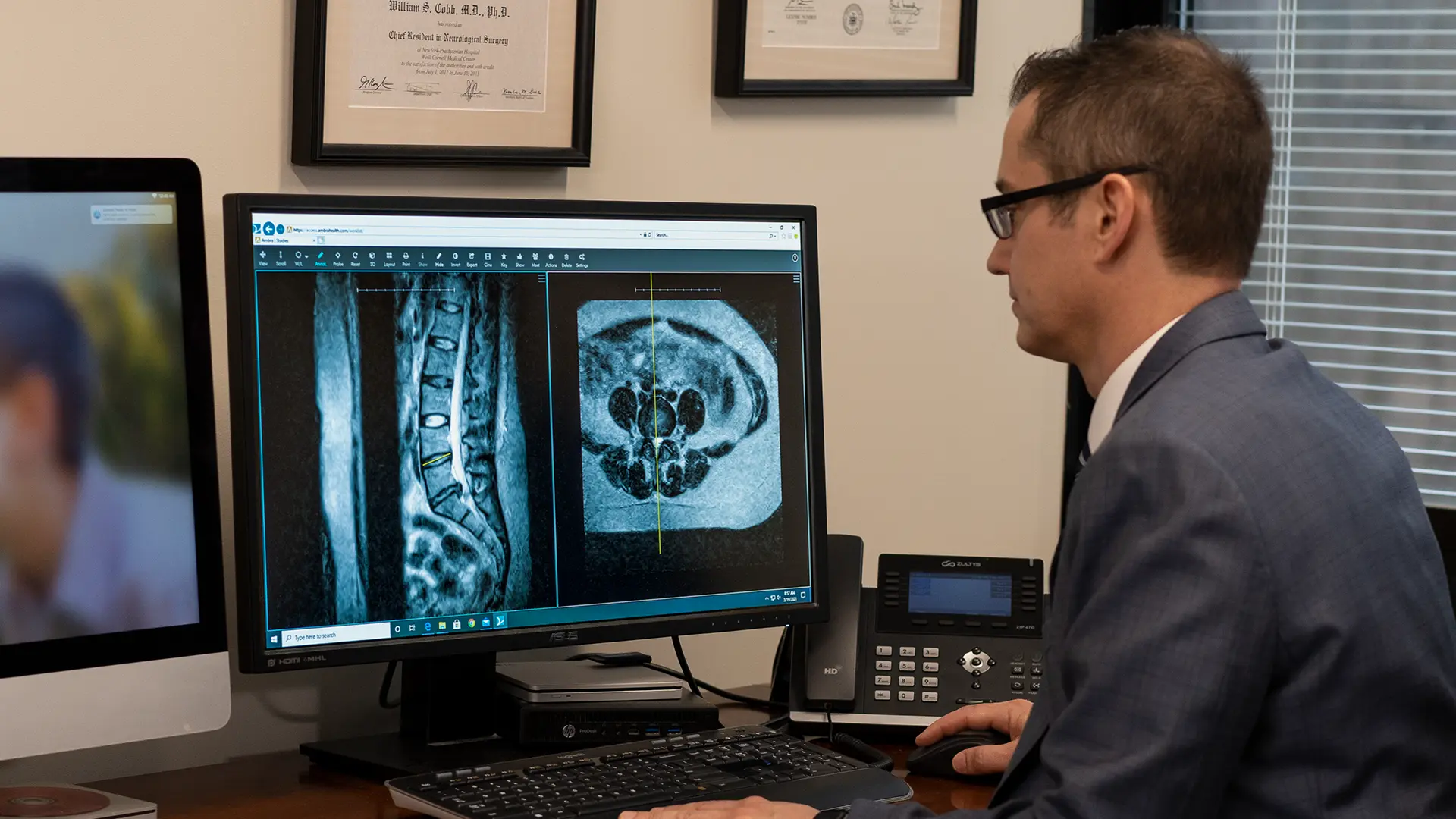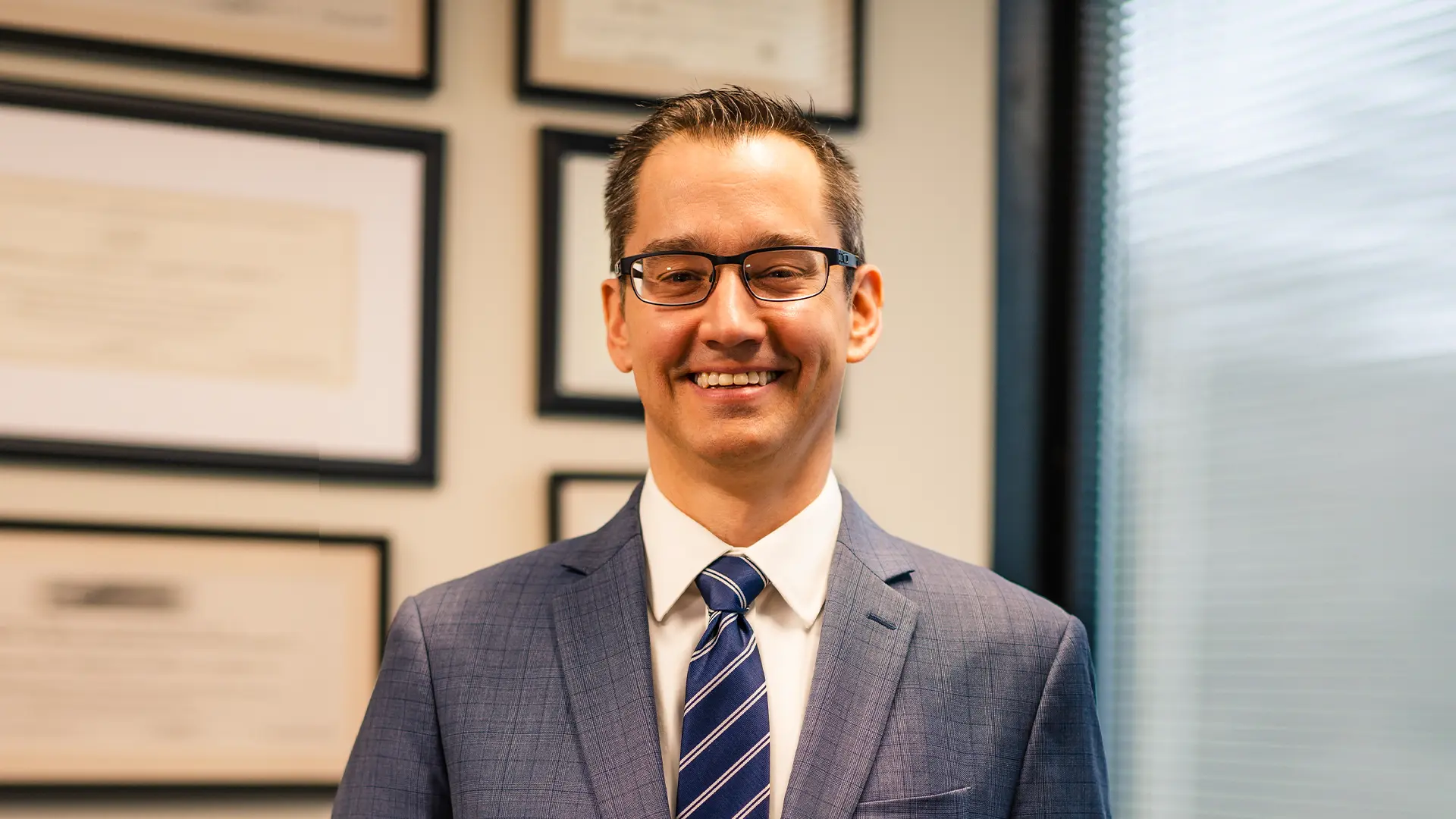If you are experiencing low back pain or sciatica, you may benefit from many different treatments for your low back.
Some of these treatments may include conservative therapies like chiropractic care, physical therapy or steroid injections.
More invasive treatments for your back may include lumbar surgery. One type of surgery performed for people with certain kinds of back problems is a transforaminal lumbar interbody fusion (TLIF).
This surgery is designed to relieve pressure from your spinal nerves that may be caused by problems with your spinal bones or intervertebral discs and to eliminate abnormal movement at painful or unstable joints in your low back.
Many people with back pain have been successfully treated with TLIF surgery. If back pain is affecting your quality of life, you owe it to yourself to learn more about the procedure and find out whether your condition can be treated with this procedure in order to help you return to your previous level of activity.
What is TLIF Surgery?
Transforaminal lumbar interbody fusion is a type of spine surgery that is used to help stabilize your spine.
There are different surgical techniques that may be used during TLIF surgery depending on the severity of your case. The surgery may be performed as a standard open procedure, and some spine specialists in New Jersey are using an innovative minimally invasive approach to the procedure.
The main goal of a TLIF surgery is to stabilize the bones in your spine.
This means that two spinal bones are fused together, eliminating movement between them, and thus, eliminating your pain.
A minimally invasive TLIF surgery is performed by your surgeon making one or two small incisions in your low back precisely over the part of your lumbar spine where the problem is.
The muscle fibers are gently spread apart and a tube is inserted into the bone. Specialized instruments are then used to make precise incisions to your spinal discs and bones.
During the procedure, the spinal disc between two vertebrae is removed and a metal spacer is inserted into the disc space. A small amount of material for a bone graft is placed between the bones – this will help your bones fuse together. Metal screws and rods are then used to stabilize your spine as it heals.
In addition to removing the damaged disc and making sure your bones are secured to one another, your surgeon will ensure that your spinal nerves are adequately decompressed, and then the instruments will be removed and the small incision or incisions will be sutured.
Some spinal problems require a standard open procedure to perform a TLIF surgery. During this surgery, a significantly larger incision will be made in your back, and your doctor will separate the muscle entirely from the bone and retract is to visualize your spine directly.
The application of the hardware and fusion graft remains the same as with the minimally invasive approach.
After your TLIF surgical procedure, you will be brought to the recovery area and your nurses and doctors will meet with you and your family to discuss the surgery.
If your TLIF is performed using a minimally invasive approach, you will usually be able to leave the hospital the day after surgery. If your TLIF is performed using an “open” approach, you will be in the hospital several days and may need to spend additional time in inpatient rehab.
After discharge home, you will meet with your doctor on a regular basis to ensure that your healing and recovery progress well.
It's time to get back
to doing what you love.
Is TLIF Surgery Right For You?
A lumbar TLIF procedure is a very specialized surgery that is designed to stabilize your spine and relieve your pain. People with certain spinal diagnoses are typically good candidates for a TLIF surgery in Bergen County NJ.
These conditions include, but are not limited to:
- Spondylolisthesis
- Spondylolysis
- Lumbar pars defect (either congenital or acquired)
- Degenerative disc disease
Remember that not everyone with low back pain or leg pain will benefit from a TLIF procedure. Your doctor will examine you and your diagnostic studies very carefully to determine if you are a good candidate for such a procedure. In general, active people who live a healthy lifestyle enjoy the best outcomes and benefits from TLIF surgery.

Benefits of Having TLIF Surgery
TLIF is a minimally invasive surgical procedure. Its aim is to stabilize the spine and reduce pain.
This procedure is used to treat conditions such as degenerative disc disease, spondylolisthesis, spinal stenosis, and herniated discs.
Here are some benefits of TLIF surgery:
- TLIF is a minimally invasive procedure. This means that it causes less tissue damage and smaller incisions compared to traditional open surgery. As a result, patients generally experience less pain, have shorter hospital stays, and can return to their normal activities faster.
- Reduced Pain: TLIF surgery aims to reduce pain caused by spinal conditions. By stabilizing the spine, pressure is taken off the nerves and spinal cord, leading to a reduction in pain. This can improve a patient’s quality of life allowing them to return to previous levels of activity.
- Improved Spinal Stability: TLIF surgery involves removing the damaged disc and replacing it with a spacer or cage. This spacer is then filled with bone graft material, which promotes new bone growth and fuses the adjacent vertebrae together. This fusion leads to improved spinal stability, which can prevent further degeneration and reduce the risk of future spinal injuries.
- Faster Recovery: Since TLIF is a minimally invasive procedure, patients typically experience a faster recovery time than with traditional open surgery. Most people can expect to walk within a few hours after surgery. Most people can expect to go home within a day or two after surgery.
- High Success Rate: TLIF surgery has a high success rate, most patients experience significant pain relief and improved function after the surgery. Additionally, TLIF surgery has a low complication rate when performed by an experienced neurosurgeon.
Wondering If You Need TLIF Surgery? Neurosurgeons of NJ Can Help
If you are suffering from back pain that prevents you from enjoying your normally active lifestyle, you may benefit from a TLIF surgery to help relieve your pain and improve your function.
The best way to know if a TLIF surgery is right for you is to meet with a top- rated Neurosurgeon that practices innovative spine procedures, like the TLIF, in a professional setting.
A consultation with one of our doctors can answer your questions about TLIF surgery and help determine if the procedure is right for your specific condition.
The right surgery from the right doctor may help you get rid of your back pain and get you back to your active, pain-free lifestyle.

About Dr. William S. Cobb
Dr. William Cobb is an accomplished neurosurgeon in North Jersey and a proud member of Neurosurgeons of New Jersey, practicing out of their Ridgewood office conveniently located on East Ridgewood Avenue. During his Neurological Surgery residency, he became passionate about the development and treatment of brain tumors affecting the brain and spine. Dr. Cobb uses state-of-the-art technology for surgical intervention in the treatment of tumors of the brain and spine including Gamma Knife radiosurgery. He has vast experience in using modern minimally invasive surgery for the treatment of degenerative spine and intervertebral disc disease. Dr. Cobb serves as the Director of Neurosurgical Oncology at Valley Hospital. He's accepting new patients.
Recent Posts:







